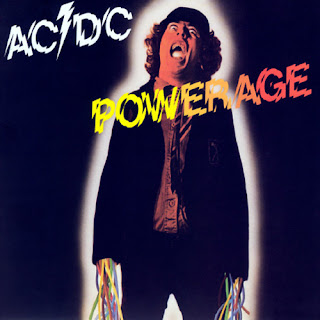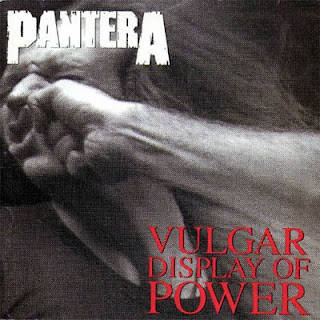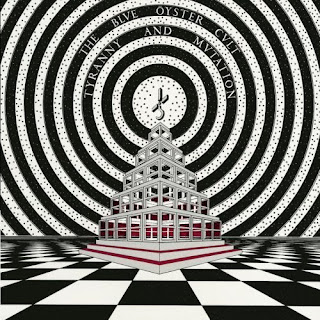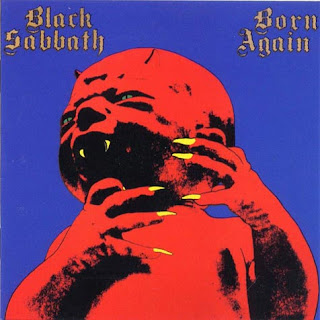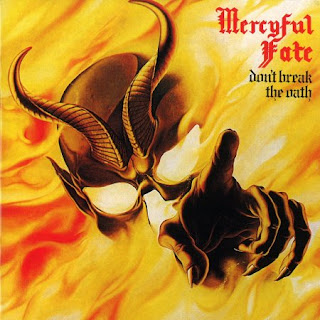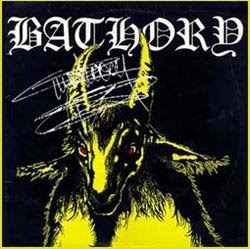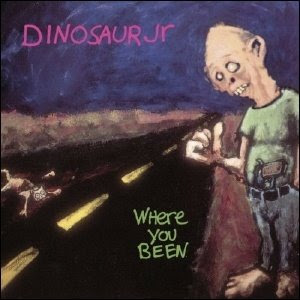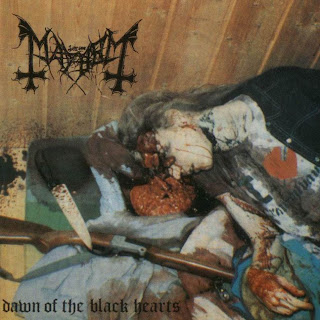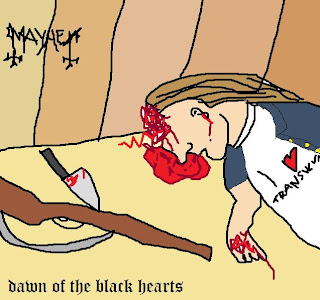>There’s this hot Swedish forum called Loseup Sepe IV that I’ve been visiting for ages. The creative members once gathered for attack on MS Paint, the suckiest art software on this planet, to interpret some classic album covers, so here’s some mindblowing art for ya! Hope I got the names right…
Clicking on some of the images will give you a larger version.
All posts by Indy
>More terrorism, please!
In fact, a disproportionate response is exactly what terrorists are hoping to elicit as a way to garner sympathy and support for their cause. The current situation in Gaza is a textbook case. Claiming that Israel was not fulfilling its obligations, Hamas declared an end to a cease-fire and militants subsequently fired rockets into Israel. In response, Israel decided first to bomb and then invade Gaza. As this is written about a dozen Israelis, most of them soldiers, have died since the beginning of Israel’s Dec. 27 offensive against Gaza. By comparison, over 900 Palestinians have been killed, with over half of them believed to be civilians, including children. The casualties and resulting humanitarian crisis will be used by Hamas to recruit more Palestinians to take up arms to avenge the deaths of family and friends.
Charles Peña, Antiwar.com
In short, the near future will without a doubt bring more terrorism, more ethnic cleansing, more suffering, more racism, more insecurity in the world. The war on terroris escalating and life goes on towards death in the fast lane…
>With each grave…
>
and deepens with each grave our collective shame.
from relevant articles about the war in Gaza.
Jennifer Loewenstein – If Hamas didn’t exist (zmag)
There was a time when Fatah and the PFLP held the day; when few Palestinians wanted anything to do with Islamist policies and politics. Such politics have nothing to do with primitive rockets being fired over the border, or smuggling tunnels and black-market weapons; just as Arafat’s Fatah had little to do with stones and suicide bombings. The associations are coincidental; the creations of a given political environment. They are the result of something entirely different than what the lying politicians and their analysts are telling you.
Rashid Khalidi – What You Don’t Know About Gaza (New York Times)
Nearly everything you’ve been led to believe about Gaza is wrong. Below are a few essential points that seem to be missing from the conversation, much of which has taken place in the press, about Israel’s attack on the Gaza Strip.
Elaine C. Hagopian – Why Hamas is not the issue – History matters (counterpunch.org)
The picture changes when history matters. Treating Israeli war crimes as historically detached events, unrelated to its Zionist ideology and militaristic strategy to control all of Palestine, becomes more transparent each day.
Glenn Greenwald – Both parties cheerlead still more loudly for Israel’s war (salon.com)
At exactly the time that worldwide horror over this war is at its peak, the Democratic-led Congress steps up to announce to the world: “this is our war, too; we support whatever Israel does absolutely and without reservations.” We thus make Israel’s wars our wars; its enemies our enemies; its intractable disputes our disputes; and the hostility and anger it generates our own. And we embolden Israel to continue further.
Thalif Deen – Aid Groups Dispute Israeli Claims in Gaza (antiwar.com)
As the Israelis try to justify the massive loss of civilian life in Gaza, their arguments and counter-charges continue to be shot down either by the United Nations or by international human rights organizations.
United Nations General Assembly Resolution 3379
United Nations General Assembly Resolution 3379, adopted on November 10, 1975 by a vote of 72 to 35 (with 32 abstentions), “determine[d] that Zionism is a form of racism and racial discrimination”.
>The New Historians
>
While revisionism at 99% percent of the time is connected to neo-Nazism by people without brains, it might be of interest to look at the New Historians, a group of Israeli (yes, Jews…) historians who are rewriting the traditional Israeli version of Israeli history. This is of course very controversial in a Jewish state run by ruthless Zionists… and of course, some of the New Historians have been labelled self-hating Jews, lost their jobs, suffered death threats and been forced to leave the country. That’s the way the story goes when you criticize Israel, question the Holocaust or denounce Zionism.
The New Historians, compromised of some 120 brave scholars, do not represent a unified body of thought, but they firmly believe that the Israel and Arab countries each have their own share of responsibility for the Arab-Israeli conflict. They’ve simply removed the blindfolds.
Here’s how their history differ from the ”official” version of Israeli history:
- The official version said that Britain tried to prevent the establishment of a Jewish state; the New Historians claimed that it tried to prevent the establishment of a Palestinian state.
- The official version said that the Palestinians fled their homes of their own free will; the New Historians said that the refugees were chased out or expelled.
- The official version said that the balance of power was in favor of the Arabs; the New Historians said that Israel had the advantage both in manpower and in arms.
- The official version said that the Arabs had a coordinated plan to destroy Israel; the New Historians said that the Arabs were divided.
- The official version said that Arab intransigence prevented peace; the New Historians said that Israel is primarily to blame for the dead end.
Now, any sane person wouldn’t find these claims controversial. It’s pretty much what critics of Israel and Zionism have pointed out for years. However, since traditional Israeli history is clearly abused, primarily using the Holocaust memory to Nazify Arabs, exclude criticism and justify criminal policies, crimes against humanity and the violation of so many rights (alwaysprotected by the United States), using the above claims is devastating to the Zionist cause. Thus, the New Historians are public enemies number one.
In my opinion, the New Historians take on history with honesty. As already stated, they claim that Israel and Arab countries each have their own share of responsibility for the Arab-Israeli conflict, and Ilan Pappe, for example, has said that Palestinians are ”as violent as the Israelis, no more or less, with only one difference: The difference between the violence of the occupier and the violence of those fighting occupation”. Also, the Palestinians don’t have planes or tanks, they use the tools of the weak. The present situation forces Hamas to aggression. Israel must end their occupation and concentrate on including rather than excluding various ideological movements. That way Hamas’ stance will turn from aggressive to constructive. The New Historians seem to agree on this.
Genuine intellectuals should strive to have respect for someone else’s point of view, and this is where the New Historians succeed. They woke up and realised ”there are other people living here, maybe we should examine how they feel about history”.
The educational system in Israel, the media in Israel, the political system in Israel, sends us Jews in Israel a very clear message from our very early days until we die. The message is very clear, and you can see that message in the platforms of all the political parties in Israel. Everybody agrees with it, whether they are on the left, or on the right. […]
The message is that personal life – not collective life, not even political life – personal life of the Jew in Israel would have been much better had there not been Arabs around. […]
I mean, you can understand – maybe not accept but you can understand – how a society treats immigrants. Sometimes they find that these immigrants come to take my job, you know these politics of racism that are the result of immigration. But we are not even talking about immigrants, we are talking about a country that someone else immigrated into, and turned the local people into immigrants, and said that they have no rights there.
Ilan Pappe, The History of Israel reconsidered
Every 30 years (50 years for military matters, 30 for political matters) the Israeli archives declassify secret material, so when Ilan Pappe in the early 1980’s began studies of ”the other side” quite a lot of material about 1948 was released. He saw a picture of 1948 that he was not familiar with. The documents showed a reality different from what he knew. In 1998 the military archives were opened and the New Historians got even more evidence supporting their claims. But the Israeli people turned against them. This what not what they wanted to hear.
It’s the same thing with Holocaust revisionism. People don’t want the truth because it’s devastating to their cause. They respond with death threats, censorship, jail and just about anything but an open debate.
In 1948 the world knew what was happening and still decided not to do anything, thus sending a sickening message to the state of Israel: It’s okay to get rid of the Palestinians. This is why the ethnic cleansing of Palestine continues today as we speak. Will the world react this time? It’s been two weeks of relentless killing and the leaders of the world are still not doing what they should.
The creation of Israel in 1948 was a result of the Holocaust, and it resulted in the ethnic cleansing of Palestinians, a military occupation of Palestine (didn’t the Jews learn anything from the Holocaust? Or maybe they did…). Israel is attempting to divide the West Bank in one part annexed by Israel and another part maintained as a huge concentration camp (like the Gaza Strip). Zionism is clearly an ideology of racism, exclusion and expulsion. Future Palestinians will not forget, and certainly not forgive. The result of this war will be devastating – not only to Arabs and Jews, but to the whole world. Peace though war – everybody know how silly that sounds.
So why does the world allow Israel to do what it does?
This article is based on a great speech – The History of Israel reconsidered – by Ilan Pappe. Go here to read it.
1948 – lest we forget
Swedish review by Nikanor Teratologen of Ilan Pappe’s book The Ethnic Cleansing of Palestine
>War and pain
>
This is what’s happening right now. Crank up the volume, watch the whole clip and digest. Then let’s read this post, Zionism, Jews and conspiracy theories, follow the links and at least think about the total failure of the pathetic human race for a while before continuing our daily lives.
Let’s go, 2009!
EDIT: According to comments here this video might not be showing Israel bombings in Gaza, but Hamas rockets detonated by mistake – in 2005. Well, it’s all about wartime propaganda – who to trust? Thanks to Jacques de Beaufort for bringing this to my attention.
However, no matter where this video is shot it still depicts the brutality of war and the complete failure of the human race, so this blogpost is nonetheless of major relevance. This is still what happens in Gaza right now: With the connivance and approval of the United Nations, Europe and the United States, Israel is engaged in a campaign of extermination, a holocaust against the Palestinians. Time to speak up!
>The best movies 2008
> This list will feature some films that were originally released in 2007.
This list will feature some films that were originally released in 2007.
Explanation: This is Sweden, the Northern hemisphere of everything cold and damp, and we’re still a bit behind. For example, Tropa de Elite premiered in Rio De Janeiro in August 2007 and reached Sweden one year later. No wonder those who take serious interest in movies and want to take part in the worldwide discussions on internet forums and elsewhere resort to illegal downloading…
There are two Swedish films I haven’t seen yet, De ofrivilliga (Involuntary) och Låt den rätte komma in (Let the Right One In). I think Gitarrmongot (The Guitar Mongoloid), Ruben Östlund’s first full-lenght feature, is one of the best Swedish films ever (one day I’ll write about Swedish films exclusively), and I love John Ajvide Lindqvist’s debut book and have heard only good things about the movie, so I’m sure both films would have been featured on this list if I’d seen them.
As for The Dark Knight, well, it’s an ok movie. Very overrated, though. Heath Ledger (R.I.P.) was amazing as The Joker, but that alone doesn’t make a good movie. And yes, I enjoyed the total mindlessness of Rambo a lot!
As for the amount of worthless or just anonymous movies I’ve watched thoughout the year… Well, I’ll spare you the hate and leave you happy not knowing what junk there is out there (Tropic Thunder and its’ fans, please fuck forever off…).
Me and a friend ran the Östasiatiska Museets Filmklubb for several years, showing movies from the Far East (China, Korea and Japan), but also from India and Southeast Asia. Since the downfall of that club I got sort of tired of those kind of movies and haven’t really been updated there. The Warlords reminded me of how mesmerizing Asian movies can be when that very special Asian humour is left out. The scenery is fantastic (so many bodies…), like an epic war poem, or a painting brought to life. As always, the fight scenes are superior to everything Hollywood has ever accomplished. And Jet Li looks old, which is cool.
Speaking of Asian movies, I still haven’t seen Lust, Caution. I’ve heard some good words about the sex scenes in that one.
If you had to chose only one or two (ok, three then) films from the list below, I suggest There Will Be Blood, Into The Wild and Eden Lake. Here’s why:
Eden Lake made my pulse rise, it made me cringe in my seat. Very few horror movies have that effect on me nowadays. The psychological horror is mixed with blood and comes full circle: it’s scary. And let’s face it, children are as evil as adults. There’s no escaping the human madness.
Into The Wild made me cry, think about my family and planted thoughts of relevance in my mind. I wrote about that in a previous post entitled Into The Wild and the ego. It’s got an amazing soundtrack as well. Very good lyrics and music on that one.
There Will Be Blood… wow! It’s about life, misanthropy, belief, cause and effect. It’s subtle, but still epic. Last year I was blown away by No Country for Old Men. This year it’s There Will Be Blood. Both of these films have a faint relationship to the Southern Gothic genre. Guess I enjoy disturbing characters who say cool stuff like There are times when I look at people and I see nothing worth liking and I… drink…your…milkshake.
However, all ten films are well worth watching.

[REC] (avoid the American remake! Watch the Spanish original.)
Last year’s list for the statistically impaired.
>The best albums 2008
>
 Mgła – Groza CD
Mgła – Groza CDBy far the very best black metal album of 2008. While mainstream media talk about Darkthrone and Satyricon, I don’t even consider that stuff black metal anymore. Darkthrone is a joke and Satyricon is just some ordinary slick metal that’s got nothing to do with black metal whatsoever.
Mgła comes forth with the most astonishing piece of work in a long time. The monotony, the guitar lines and the perfect drum play along with the classic black metal-voice is simply a beautiful work of art. Ever since their appearance on the Crushing The Holy Trinity compilation back in 2005 Mgła have definitely proven themselves worthy time and time again, and with Groza they reach perfection. In my opinion, this is the true essence of black metal.
Hail to Poland!
Between the grey pillars of conscience the path to truth narrows.
Standpoints are chosen over general reason.
This is probably the record that defines 2008 for me. It contains all the moody darkness and shady light that represent the worst year in my life. I love this album. Twin Peaks goes Americana on a desert plain in the middle of nowhere, into the wild, no country for old men, and so forth… The desolate soundscapes are so majestic it’s almost surreal. Soothing stuff for a fucked up mind that works best when reading Cormac McCarthy’s The Road.
Read the interview I did with Dylan Carlson earlier this year.
The darkness is always present in Thomas Ekelund’s music, sort of David Lynch-like, Jan Švankmajer-esque. But with Thomas’ music there’s always that human touch: if you feel too scared to continue, just reach out and he’s there like a shoulder, like a ghost, to lean on. At least that’s how I feel when listening to this black mass of isolation, insecurity and determination. The will to power as expressed through the art of the diseased. The nature of the beast.
Lost In Reflections, along with the additional 7” single that completes the package, is beyond doubt his master’s voice, his masterpiece if you like. It’s an incredible album that should touch souls if the bearer of that soul is up to the task of recieving such mindmelting audio. Beyond all darkness there is light, though. It’s bleak and unpleasantly cold and damp, but its warmth equals survival.
Alongside the Earth and the Mgła albums, this one is definitely the album of the year.
Ok, this also fits the title Album of The Year perfectly. Extreme scene hype on this one, but do believe it. This is where the new school kids on the block have sex with the old school farts from back in the early ’80’s. Folky drones meet with psychedelic prog vibes as the industrial dark ambience flows through the veins of Lucifer and digs deep into the murky ass of some lowlife white trash farmer on crack – and strikes gold! I don’t know what the hell I’m talking about here, but check this out. It’ll slay yo mama.

Ofermod –Tiamtü LP
Ah yes, this invokes the spirit of old Dissection, the slow brooding parts of Deathspell Omega and eternal darkness, death and delirium… The spirit! The opening lines – In an abyss of uncreation… – come as classic as Triumphator’s Flesh be gone! and Watain’s Show me the face of uttermost madness!, sung with vocals just as persuasive as those of Arioch on the Salvation album. Far from Ariochs insanity, but equally determined and hateful. The vocals are right up there in the mix and that’s the way it should be.
At first I thought this was quite an anonymous album, but Tiamtü slowly builds, comes creeping and infects your feeble mind. The guitar harmonies and arrangements are memorable, heavy and majestic, almost filmic at times, otherwordly, and the production is perfect: not too clean, not too powerful, not too sloppy… Just perfect.
Slay them! So dead…

Brainbombs – Fucking Mess LP
This is seriously good. If there’s a hype regarding this album – fuck it! This is beyond the cliché and tragedy of newcomer posers. Read the article and deify.

Woven Hand – Ten Stones CD
Damn, a lot of the albums on this list are like ”well, not as good as the previous one, but still damn good!” and that’s what I think about Ten Stones as well. Mosaic (2006) is sooo amazingly good, which makes Ten Stones only sooo good. But that’s obviously good enough. This Christian freak (who thinks he’s a Native American?) is a genius. Worship Him!

Witch – Paralyzed LP
Not all at the kind of dark magical gem that made their debut album so fantastic, but still well worth your attention. Once you get passed the fact that this doesn’t sound very much like the debut it’ll grow and rise to heights you thought didn’t existed. Well, not really, but kind of. Knowing that J Mascis, God of all, sits behind that fat bass drum should be enough information to get you going.

U.S. Christmas – Eat The Low Dogs CD
Dark, psychedelic, mindbending spacerock blues. Their gig at the Roadburn festival next year will hopefully be a killer. If my back hasn’t let me down by the time they play I will stage dive into infinity when they let loose The Scalphunters. Maybe.

Portishead –Third CD
I am a huge fan of Dummy and have been listening to that record at least once a year since its release in 1994. The vibe reminds me of Public Enemy’s unbeatable feat Fear of A Black Planet, packing layers upon layers, hauling roughneck beats and dirty tricks. Third is not that much of a genre defining trip hop album as the debut, in fact there’s not much trip hop at all on this one. Third simply represents thrilling, modern, experimental pop music in a league of its own.
It was made available on last.fm at first, free for everybody to enjoy a week before the actual album release. Brilliant move! In just under 24 hours approximately 327,000 listeners went online to listen to the album. This is the new deal.
On a sidenote, speaking of Public Enemy, Wikipedia states that On May 29, 2008 Portishead’s Geoff Barrow realized a “boyhood fantasy” when Chuck D of Public Enemy joined the band onstage at the Primavera Sound festival in Barcelona. He contributed a freestyle rap over Portishead’s single ‘Machine Gun’”.
I got this LP yesterday and just by looking at it, checking the participating artists, I knew it would be on this list. Bocksholm (Peter Andersson and Peter Andersson, of Deutsch Nepal and Raison d’Être respectively, two of the best constellations from the early Cold Meat Industry period), Dusa (creator of the absolutely stunning Ljung LP), Niellerade Fallibilisthorstar (after hearing only two of their songs last year I ordered everything they had put out at the time) and Vårtgård represents the sounds of the Swedish countryside – and the countryside of industrial music is very much alive, as you’ll hear on this stunning album. Because this is music that breathes. This is what Amish industrial would sound like if it ever existed. As expected, Dusa totally dominates this album, although all four acts bring very high quality stuff. Segerhuva should’ve reserved some space for Ättestupa as well, then this LP would have been a statement that nobody would want to fuck with, not even the Wu-Tang Clan. Nevertheless, it is a statement that will cause tremors throughout the world of stalemate noise posers, that’s for sure.
The only song that comes even close to classic industrial/noise is Finkhällen by Vårtgård. Bocksholmens Bögamord might bear some minor resemblance to old Deutsch Nepal, but the rest of the songs are unique soundscapes that totally stand their ground. Thus, Segerhuva is not the “noise only” label you thought it was. Hoorah!
Highly recommended!

Arckanum – Antikosmos CD
The best Arckanum material so far. His previous releases are good, but the rather weak production is quite irritating at times. Antikosmos doesn’t have that problem. The production is thick and powerful as the album is recorded in the classic Sunlight Studios and mastered by Necromorbus. As always, the trademark vocals sound like those of a fifteen year old, and I wouldn’t have it any other way. Unfortunately I don’t understand the lyrics at all, but knowing that Shamaatae is totally dedicated to the cause I bet it’s perfectly genuine stuff.
I could do without the Blóta Loka track, though.

Erik Enocksson – With Its Dark Tail Curled ’Round The Garage CD
Amazing. And so very underground. I feared Erik would turn mainstream after the success of Farväl Falkenberg (one of the best Swedish albums, as well as one of the best Swedish films), but fortunately it’s the other way around. This album will irritate people.
V/A – White Nights TAPE
In all honesty I haven’t had the time to listen to this 4TAPE-BOX yet (got it a couple of hours ago), but there is no doubt in my mind that this is a total freakout of a killer fucking onslaught against all senses. Alfarmania, Ochu, Proiekt Hat, Sewer Election, Tape Dekay, Trepaneringsritualen, Treriksröset and Vårtgård… That’s top notch warfare right there!
Early in 2008 the eight present here received one copy each of the so called Death Tape from Jonestown. They were given total freedom to do whatever they wanted with the cassette as long as it became 15 minutes worth of sounds. This is what they did.
I don’t think the misspelling of ”Nights” on the cover is intentional, but somehow it suits this massive compilation perfectly. It should be filthy. This is not corporate.
Limited to 100 copies.

Robedoor – Shrine To The Possessor LP

Dystopia – LP

Esbjörn Svensson Trio – Leucocyte CD

Dr Dooom – Dr Dooom 2 CD

The Tallest Man On Earth – Shallow Grave CD

Skullflower – Desire For A Holy War CD

Melvins – Nude With Boots LP

Bonnie Prince Billy – Lie Down In The Light CD

Grand Magus – Iron Will LP

Jason Crumer – Burning In Hell LP

Mogwai – The Hawk Is Howling LP

Ufomammut – Idolum LP

Opeth – Watershed CD

Bohren Und Der Club of Gore – Dolores CD

Haare – Chemical Witchcraft LP

Massgrav – This War Will Be Won By Meat Eaters CD

Moss – Sub Templum LP

Mob 47 – Dom ljuger igen 7″

Nick Cave – Dig, Lazarus, Dig!!! CD

Asva – What You Don’t Know Is Frontier LP

Krisiun – Southern Storm CD

PVMNTSW – Förintelsens elfenbensportar 3″CD

Black Mountain – In The Future LP

Javelina – CD

Jex Thoth – CD (Read the interview)

Portrait – LP

Erykah Badu – New Amerykah… CD

Titiyo – Hidden CD

Coldworker – Rotting Paradise CD

Meshuggah – ObZen CD

Danava – UnonoU LP

Jarl – Tunnel Vision / Mind Reaper TAPE

White – Tormented TAPE
Reissues:
Blod – Red Light Companion 3LP
Holy macaroni! This 3LP-BOX is a monster! From the Segerhuva site:
All in all, this box stands as a monument to the heavy noise genius of Jesper Forselius and his BLOD. Hailed by harsh noise fanatics over the world, Blod’s music is a unique offering of perverse singlemindedness shaped into sick monolithic slabs of noise.
The liner notes written by Taint are just as sick and disturbing as the music. In other words, a complete package for the mentally deranged that crushes just about everything you thought you knew about noise, morals and sexuality. Apparently the Segerhuva posse spent about 40,000 SEK on this release which adds yet another dimension to the sickness.
I love it!

RJF – Greater Success in Apprehension & Convictions CD
Originally released in 1983, this is experimental industrial at its very best. As Segerhuva puts it: …this is a sinister reminder that something was alive back then, something that is missing now.

Sabu Martinez – Burned Sugar (The Swedish Radio Recordings 1973) LP
This is proof that funk was not invented in the U.S., it was invented in Jönköping! Just listen to the drums of maestro Stefan Möller (The Spotnicks) and submit. Musically Burned Sugar appeals to fans of funk, jazz, fusion, krautrock, extreme prog and filthy freak out bursting blasts from outer space, as stated on the Mellotronen webpage. Couldn’t agree more.
And of course there is a lot of stuff I haven’t heard yet that probably will kick some kind of ass as well, stuff from Wolfbrigade, Uncurbed, Avskum, Victims, World Burns To Death, Bong, Coffins, Leafes… The list goes on. But hey, there are roughly 50 albums on this list for you to check out (and I probably forgot some), so I hope you find something new!
Now… I just got a Spotify account, so let’s see how many of these albums are available there…
Disappointments:
I had high hopes for these albums, but no… They turned out to be major disappointments. I have to give them a few more spins before I give them away, though.
Leif Edling – Songs of Torment – Songs of Joy CD
The Devil’s Blood – Come Reap EP
Anna Ternheim – Leaving On A Mayday CD
If you’re a freak – like me – and can’t get enough
of those funky lists, check these out as well:
Top 40 albums 1991 – 2008
The best albums 2007
The best albums 2006
















